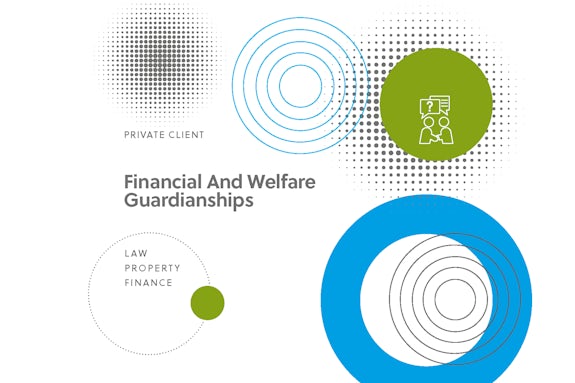We encourage our clients to consider appointing attorneys under a Continuing and Welfare Power of Attorney, in order to ensure that someone of their choosing is available to take action in the event of a loss of capacity. Sadly, however, for some people that step has not been completed by the time they develop an illness or have an accident which renders them unable to deal with matters themselves. Powers of Attorney cannot be put in place after capacity has gone.
In those circumstances, there are other options, albeit they are more lengthy and costly given that they involve Court processes.
The most common application is for the appointment of a guardian. This can be to cover dealing with broad financial matters but a guardian can also be appointed to deal with welfare decisions. The powers requested through this process are specific to the needs of the adult in their current circumstances. This is slightly different from granting a Power of Attorney where the powers are often quite wide and generic in order to deal with potential situations in the future which cannot, at the time of granting the deed, be wholly anticipated.
In order to make the application to Court it has to be supported by some medical opinion which comes from, generally, the GP, a Consultant Psychiatrist and a Mental Health Officer.
Interested parties, of which there can be several, need to be notified of the Court application and given the opportunity to respond before a hearing is set and a determination made by the Sheriff. Even with everything going to plan that process can take several weeks and it is not uncommon for it to be much longer. In some areas of the country the lack of availability of Mental Health Officers to deal with such cases can delay the process by many months, perhaps over a year.
Once determined by the Court the guardian takes over the financial affairs and/or making welfare decisions for the adult. There are requirements to lodge financial inventories, make proposals as to how finances are to be managed and to account for all intromissions with the adult’s funds. Whilst, in our experience, family members are more than willing to do this it is undoubtedly quite an onerous task. The appointment is overseen by the Office of the Public Guardian and that office requires regular accounting and updates. They may also be involved in authorising specific decisions, such as the sale of property or making of gifts.
Although not every firm offers legal aid, it is worth noting that legal aid is available for welfare guardianship applications (and financial applications can be part of the same Court process). For some people, however, there is a time imperative which leads to a decision to pay for matters privately.
It is worth mentioning that there are other types of Court applications which permit less extensive management of an adult’s affairs, broadly relating to single transactions (for example the sale of a house) or accessing funds for a specific reason, such as simply paying care fees. Generally speaking, however, if an adult’s affairs are averagely complex it may be necessary to apply for the broader powers under a guardianship.
Gilson Gray have experience of these applications and of acting as professional guardians as well. If you wish any further information please contact our Private Client Team on privateclient@gilsongray.co.uk








